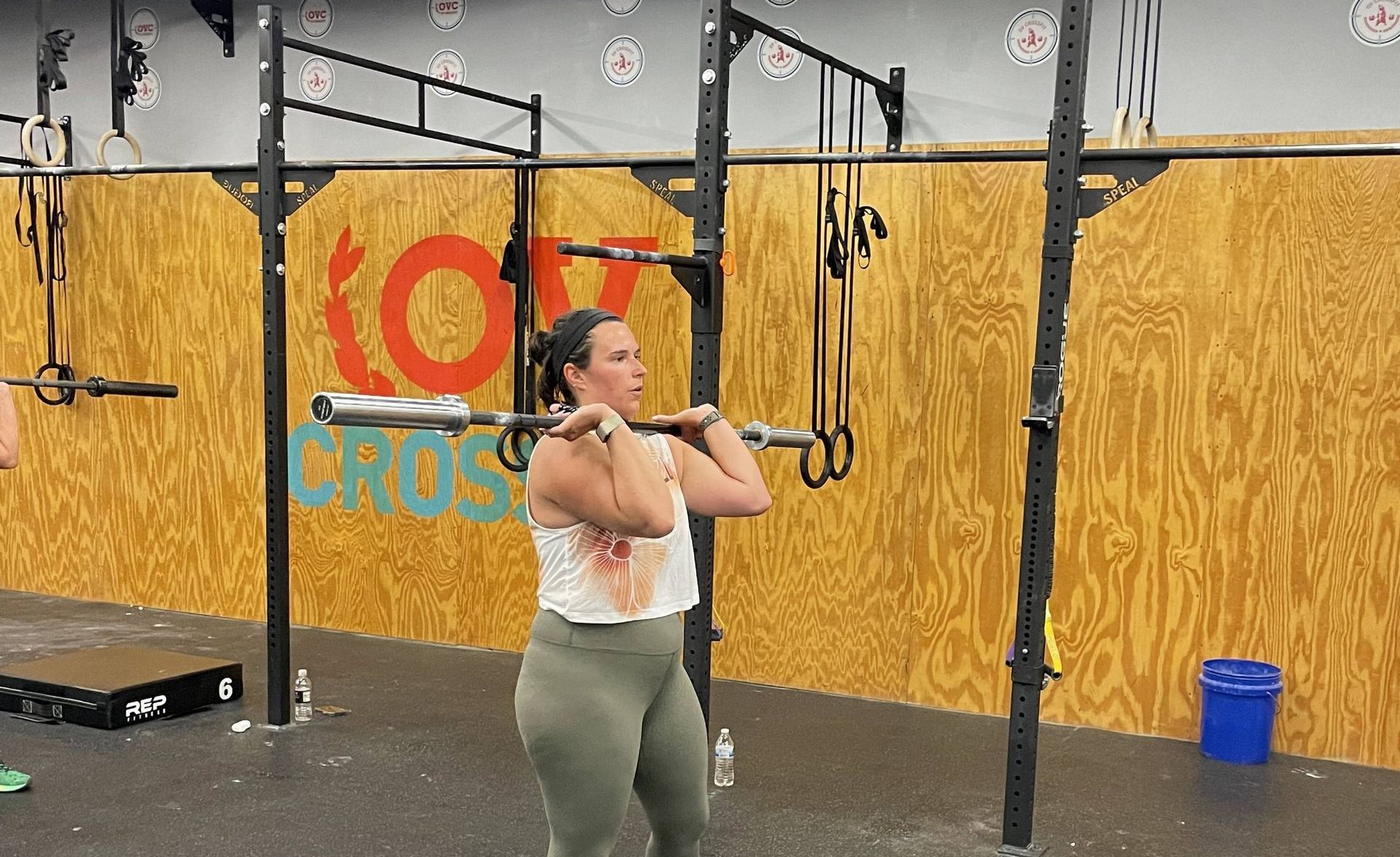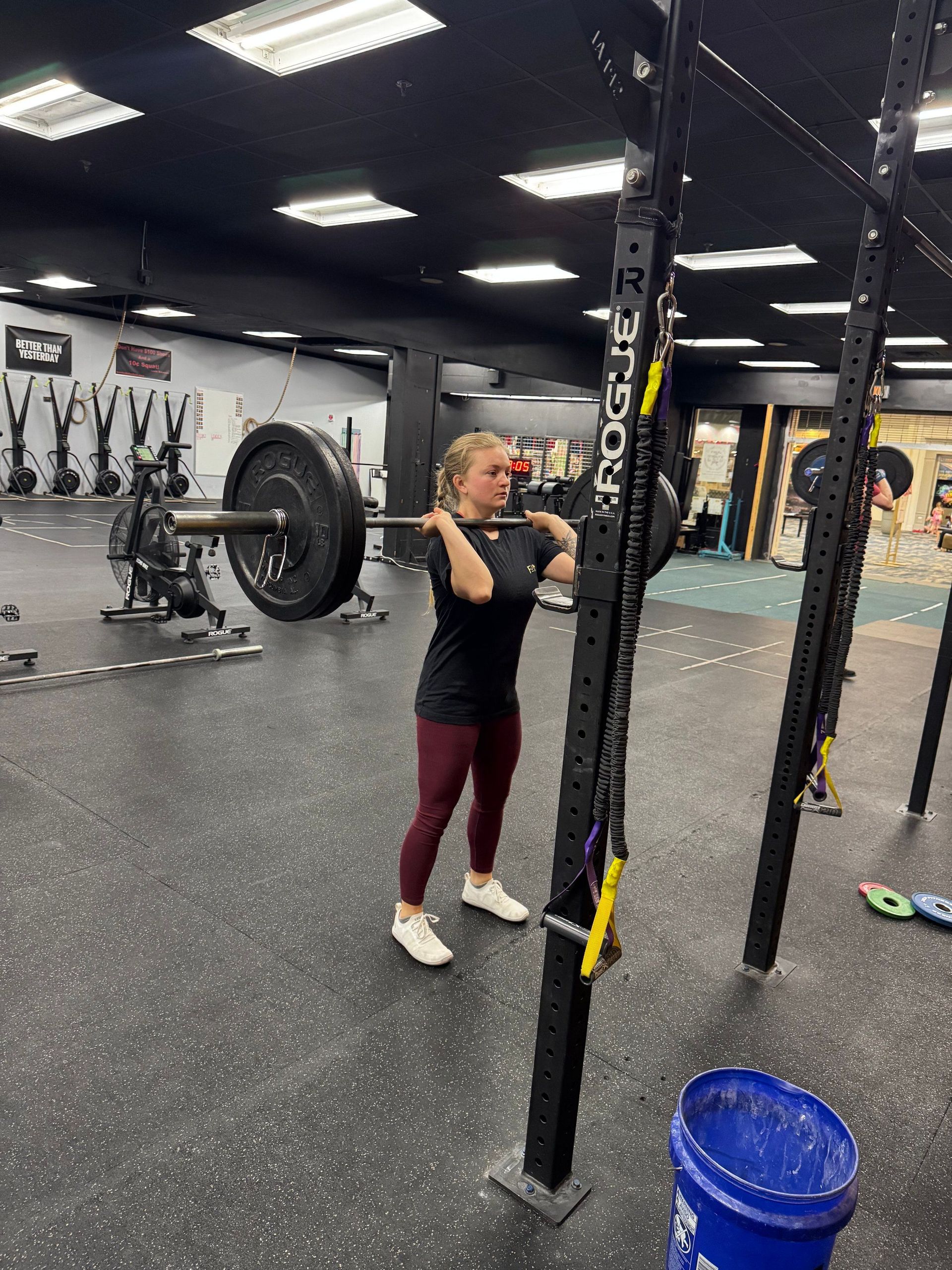CrossFit Gym in St. Clairsville, OH
OV CrossFit
Be Better Than Yesterday
Every human should have the ability to move effectively and efficiently. We're here to help you do just that.
What's Holding You Back?
We're Ready to Guide You towards a Better You
At OV CrossFit in St. Clairsville, OH, we are a group of people with a common goal: being "Better Than Yesterday". We offer an atmosphere that allows humble/hungry/happy athletes to develop into better version of themselves. Our coaches are here to teach and support your development for the long-haul. This investment is why we're honored to have so many long-term members of our community. If you are interested in joining a diverse group of people all looking to improve each day, we want you here. The first step has to be yours. The rest of the journey we'll take together. At OV CrossFit we realize everyone has a unique starting place - you may be a beginner or a seasoned athlete. Our free intro assessment helps guide people to the best program for their goals and abilities. Join us today!
Coaching That Transforms
Our coaches don’t just lead workouts—they lead people. Through expert guidance, real accountability, and daily encouragement, they help you unlock strength and confidence that extends far beyond the gym.
More Than Just a Gym
OV CrossFit is more than a place to train—it’s a place to belong. You’ll find genuine friendships, nonstop motivation, and a team that shows up for you in and out of the gym.
Real, Tangible Progress
Our workouts are built on smart programming and proven methods—designed to meet you where you are and move you forward. From your first pull-up to your next PR, we’re here for every milestone.
The First Step is the Hardest
We're here to make it Easier
Come meet the team, feel the energy, and see the community in action. Book your free trial—everyone starts somewhere, and we’re here to help make it as easy as possible to kickstart your journey to better health and fitness.
1. Claim Your Free Trial
We want to give you an opportunity to see if we're the right fit before you sign up for a membership. Book your free trial today—you'll start by meeting 1-on-1 with a coach for an initial fitness assessment and tour of our facility.
2. Go Through Onboarding
Do a baseline workout with one of our experienced coaches then we'll get you set up with 3 Onboarding classes to get an overview of our unique training methodology and class options so you can understand what sets us apart from others.
3. Sign Up & Start Growing
We'll help you select the right membership for your goals so you can start building a routine with our group CrossFit workouts and other programs. You'll be amazed at the life-changing results you'll see in your fitness and health!
CrossFit
Our Main Group Fitness Program
Our CrossFit program combines expert coaching, functional training, and a supportive community to help you unlock your full potential. Whether you're a beginner or a seasoned athlete, our scalable workouts and personalized guidance ensure you achieve your goals safely and effectively.
Ready to start? Book a free trial today!
Other Fitness Programs
Our Class Schedule
Daily Fitness Classes for All Levels, Ages & Goals
Ready to level up your fitness? Explore our regular schedule of fitness classes in St. Clairsville, OH below and jump into a workout at OV CrossFit today!
Follow Us on Social Media
Catch the action, the energy, and the results. Follow us online and see what makes OV CrossFit more than just a place to workout.
Ready to get started? Claim your free trial and discover what makes our gym different.
Member Testimonials
No matter where you’re starting from, change is possible—and our community is proof. Ready to begin? Book your free trial today!
OV CrossFit has some of the best coaches with the best programming. They do an amazing job at working on the fundamentals to ensure safety and the right level of workout for any fitness level. Whether you are new to fitness or a seasoned vet, I can promise this place does not disappoint.
- Mason T.
My husband and I dropped in while we were in town visiting family and had an amazing experience! JR was not only extremely accommodating but he coached us as if we were members of his own gym. We had a great time and will definitely be dropping in again when we are back in town!
- Elise S.
I always make it a point to drop in at OV CrossFit when I'm visiting the Ohio Valley. The programming and coaching are terrific, and the members are always friendly and welcoming. One of my favorite places!
- Robert O.
My very first CrossFit experience was at OV CrossFit and it was fantastic!! Not only was it an amazing workout, but everyone was super friendly and welcoming. I encourage anyone to check them out - you won’t be disappointed!!
- Jodi V.
Claim Your Free Trial
Fill out the form and we'll reach out to answer any questions you have and set up your free trial. We're here to guide your fitness journey at OV CrossFit!
Take the First Step Today
What have you got to lose? Stop breaking promises and follow them through. It all starts with our free assessment session. Click the button below to get started today!





